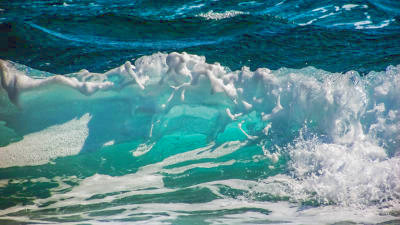← students

| First name: | Beate |
| Last name: | Kraft |
| Country: | Germany |

Thesis Subject:Competition between denitrifying and dissimilatory nitrate reducing bacteria in natural communities
| Education: | |
| Since 09/2009
PhD student at the Microbial Fitness Group, Max Planck Institute for Marine Microbiology, Bremen |
|
| 05/2009
Diploma Thesis Paleomicrobiology Group, Institute for Chemistry and Biology of the Marine Environment, University of Oldenburg, Germany "Identity and abundance of chemolithoautotrophic sulfate-reducing bacteria from sediments of the Namibian Upwelling |
|
| 10/2003 – 06/2009
Studies of Marine Environmental Sciences, Institute for Chemistry and Biology of the Marine Environment, University of Oldenburg, Germany |
|
| 08/2005 – 06/2006
Studies of Marine Science University of Cádiz, Spain |
Scientific Interests and Goals:In the nitrogen cycle two ubiquitous ecological guilds of microbes compete for the electron acceptor nitrate: denitrifiers and dissimilatory nitrate reducers. Denitrifiers reduce nitrate to gaseous products (mainly nitrogen) whereas dissimilatory nitrate reducers produce ammonia. The outcome of this competition has important environmental consequences. For example, denitrification leads to a loss of fixed nitrogen from the system and emission of nitrous oxide to the atmosphere.
In my PhD project I enriched environmentally important members of these two ecological guilds of microbes. Furthermore, I investigate the environmental factors that affect the competition between denitrifiers and dissimilatory nitrate reducers. I am interested in the population dynamics that take place in steady state continuous cultures over time with regard to niche or neutral theory and bacteria-virus interactions.
The experimental approach consists of the incubation of natural microbial communities in chemostats under well defined conditions. This enables me to manipulate the parameter of interest under otherwise identical conditions. The bioreactors are inoculated with sediment of a tidal flat with active nitrogen cycling. Complete mass balancing of nitrogen and carbon compounds is performed to monitor the conversion of nutrients. The species and genes involved in nitrate reduction are analyzed by deep sequencing (Illumina, Ion torrent).
In my PhD project I enriched environmentally important members of these two ecological guilds of microbes. Furthermore, I investigate the environmental factors that affect the competition between denitrifiers and dissimilatory nitrate reducers. I am interested in the population dynamics that take place in steady state continuous cultures over time with regard to niche or neutral theory and bacteria-virus interactions.
The experimental approach consists of the incubation of natural microbial communities in chemostats under well defined conditions. This enables me to manipulate the parameter of interest under otherwise identical conditions. The bioreactors are inoculated with sediment of a tidal flat with active nitrogen cycling. Complete mass balancing of nitrogen and carbon compounds is performed to monitor the conversion of nutrients. The species and genes involved in nitrate reduction are analyzed by deep sequencing (Illumina, Ion torrent).
Selected Publications:1. Kraft, B., Strous, M., and Tegetmeyer, H.E. (2011) Microbial nitrate respiration - genes, enzymes and environmental distribution, Journal of Biotechnology 155 (1), 104-117.
2. Kraft, B., Engelen, B., Goldhammer, T., Lin, Y.S., Heuer, V., Cypionka, H. and Könneke, M. (2012) Members of the genus Desulfofrigus dominate sulfate-reducing enrichment cultures from sediments of the Benguela upwelling area, FEMS Microbiol Ecol 84:86–97
3. Strous M, Kraft B, Bisdorf R and Tegetmeyer HE (2012) The binning of metagenomic contigs for microbial physiology of mixed cultures, Front. Microbio. 3:410.
2. Kraft, B., Engelen, B., Goldhammer, T., Lin, Y.S., Heuer, V., Cypionka, H. and Könneke, M. (2012) Members of the genus Desulfofrigus dominate sulfate-reducing enrichment cultures from sediments of the Benguela upwelling area, FEMS Microbiol Ecol 84:86–97
3. Strous M, Kraft B, Bisdorf R and Tegetmeyer HE (2012) The binning of metagenomic contigs for microbial physiology of mixed cultures, Front. Microbio. 3:410.


